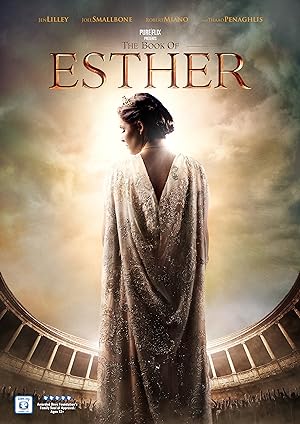If you want to aggravate me, make a film adaptation of Esther and completely depart from the spirit of the book. Esther is one of my favorite Biblical stories about how war captives, including a young girl, are forced to deal with a capricious, tyrannical king and a government official who wants them dead (anti-Semitism-a timeless hate that transcends all national and cultural boundaries). It starts with the Persian king throwing a week long drunken frat party and demanding that his wife join them at the end. She wisely refuses (just say no to gang rape scenarios) so her husband divorces her (what happens to Vashti afterwards—no one knows), rounds up all the single girls to become a part of his harem (without their consent-think prima nocta, but more awful), which means that they will never see another man who is not a eunuch or their families and friends again. It is basically state sanctioned rape. In the midst of all of this, Esther also has to pass as anything but Jewish so she does not face further persecution, and her government official relative has to secretly pass her messages to help her survive.
After praying and fasting, Esther successfully does what no one else has done: finds a diplomatic way to break the rules, persuades the king to take her side and saves all the Jewish people from state-sanctioned genocide. Not bad for a woman/young girl in a legally misogynistic, tyrannical society who was basically sexually trafficked, survived a mass rape round up to get a dubious promotion of Queen considering what happened to the first one, isolation from her family and friends while in exile in a hostile, foreign environment and the threat of death for simply approaching her husband without his permission or mass execution for being born Jewish.
The Book of Esther, the movie, seems more concerned about walking an imaginary tightrope about when is it permissible to defy your husband and sees the whole ordeal as a massive beauty pageant to vindicate Esther as the best woman of God. The conflict of Mordecai and Haman is less an example of historical anti-Semitism, but office politics on a national level. The movie makes Vashti seem like a spoiled teenager. They invent an older woman and unofficial mentor for Esther who tells her not to worry her pretty head about politics, but she is the best character in the movie because at least she is funny. The movie’s most egregious move is to make it seem like both Mordecai and Esther actually want this hellish matchup because the king is characterized as wise and eligible. Maybe I was reading too much into it, but I thought the film was trying to say that Haman was a closet case to make him more of a villain. What?!? Most surreal moment is when Esther and Haman’s daughter randomly become best friends even though they are competing on a very special Biblical edition of The Bachelor. What CW historical drama did I accidentally run into? Side note: I thought Haman’s daughter was prettier
Why do Christian film companies hate the Bible? I’m really disappointed in Pure Flix Entertainment for taking what is a genuinely interesting story that does not need much dolling up to show it to audiences (think Braveheart, but with a chick as the star). The Book of Esther shows a lack of faith in the Bible and its audience. My mom really enjoyed it despite the incredible, incessant errors in adaptation because it had the thin veneer of a Biblical context, which is why Christians can’t have nice things. Skip it! Next time, Pure Flix Entertainment needs to stick to Biblical apocalyptic films and stay out of the Biblical historical event drama genre.
Stay In The Know
Join my mailing list to get updates about recent reviews, upcoming speaking engagements, and film news.





